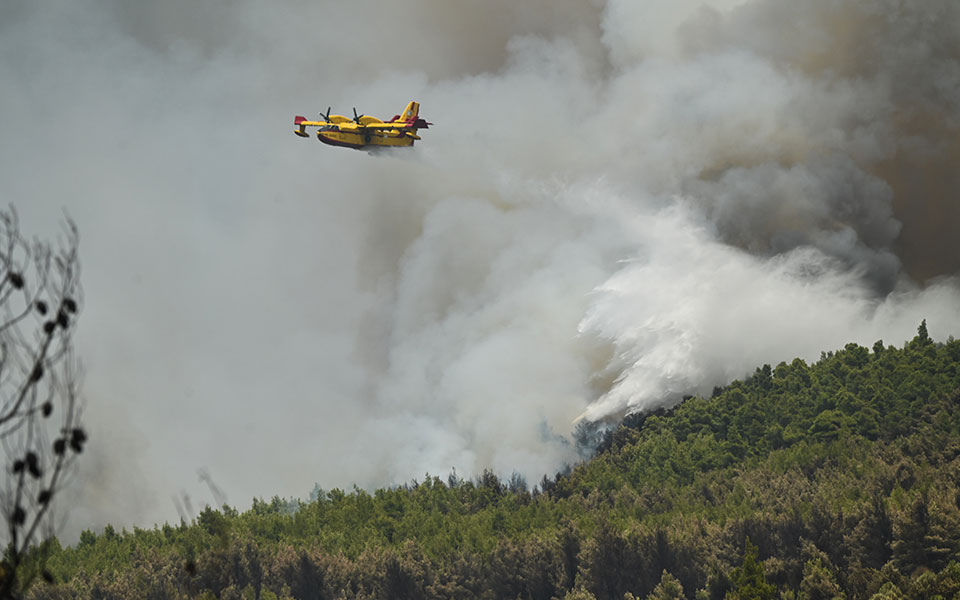EU plans to build firefighting fleet faster after summer of climate crises

The European Union and its member states agreed on Monday to speed up plans to establish an EU fleet of firefighting aircraft, after rampaging wildfires across Europe this summer exhausted the bloc’s capacity to respond.
This summer’s wildfires forced thousands of Europeans to evacuate, and razed homes and businesses, part of a worsening trend as climate change increases the hot and dry conditions that help fires spread, burn longer and rage more intensely.
Southern European countries such as Portugal and Greece experience fires most summers, but Germany and the Czech Republic also suffered large blazes this year, as hotter temperatures push fire risk north and into countries less equipped to cope.
At a meeting on Monday, the European Commission and ministers from EU countries agreed to explore an advanced purchase of EU-funded helicopters, the EU’s head of crisis management, Janez Lenarcic, said in a statement.
“At European level, we have reached our capacity limit. Some overwhelming fires in some member states did in fact not lead to a request for assistance because the countries concerned… knew that no capacities would have been available,” Lenarcic told the meeting.
The helicopter purchase will depend on extra EU funds being agreed in the bloc’s 2023 budget – a potentially challenging ask, as EU countries scramble for money to support industries and citizens hit by soaring inflation, and invest in energy infrastructure to wrest free from Russian gas.
The EU had already planned to procure a fleet of crisis-response aircraft to cope with increasing climate-fueled emergencies, but production was not expected until the second half of the decade. The EU’s emergency resources currently involve coordinating and funding the deployment of 12 firefighting airplanes and a helicopter pooled by EU countries.
EU countries are responsible for responding to forest fires, and request EU assistance only when they need back-up. The bloc received 11 requests for assistance this year, up from nine in 2021.
Commenting on the agreement when he returned to Athens on Tuesday, Greece’s Climate Crisis and Civil Protection Christos Stylianidis said it was “very encouraging.”
“The discussion was thorough. All the ministers who took the floor I believe adopted a position which, perhaps when I was commissioner and we were trying to implement rescEU, was not as unanimous as it is today,” the Athens-Macedonian News Agency quoted the minister as telling state broadcaster ERT.
“It has become commonplace in Europe, even in countries where we did not expect it, that national means, national capabilities are limited when it comes to dealing with the effects of the climate crisis as regards the issue of fires and that it is no longer just a Mediterranean phenomenon,” he said. [Reuters/AMNA]





